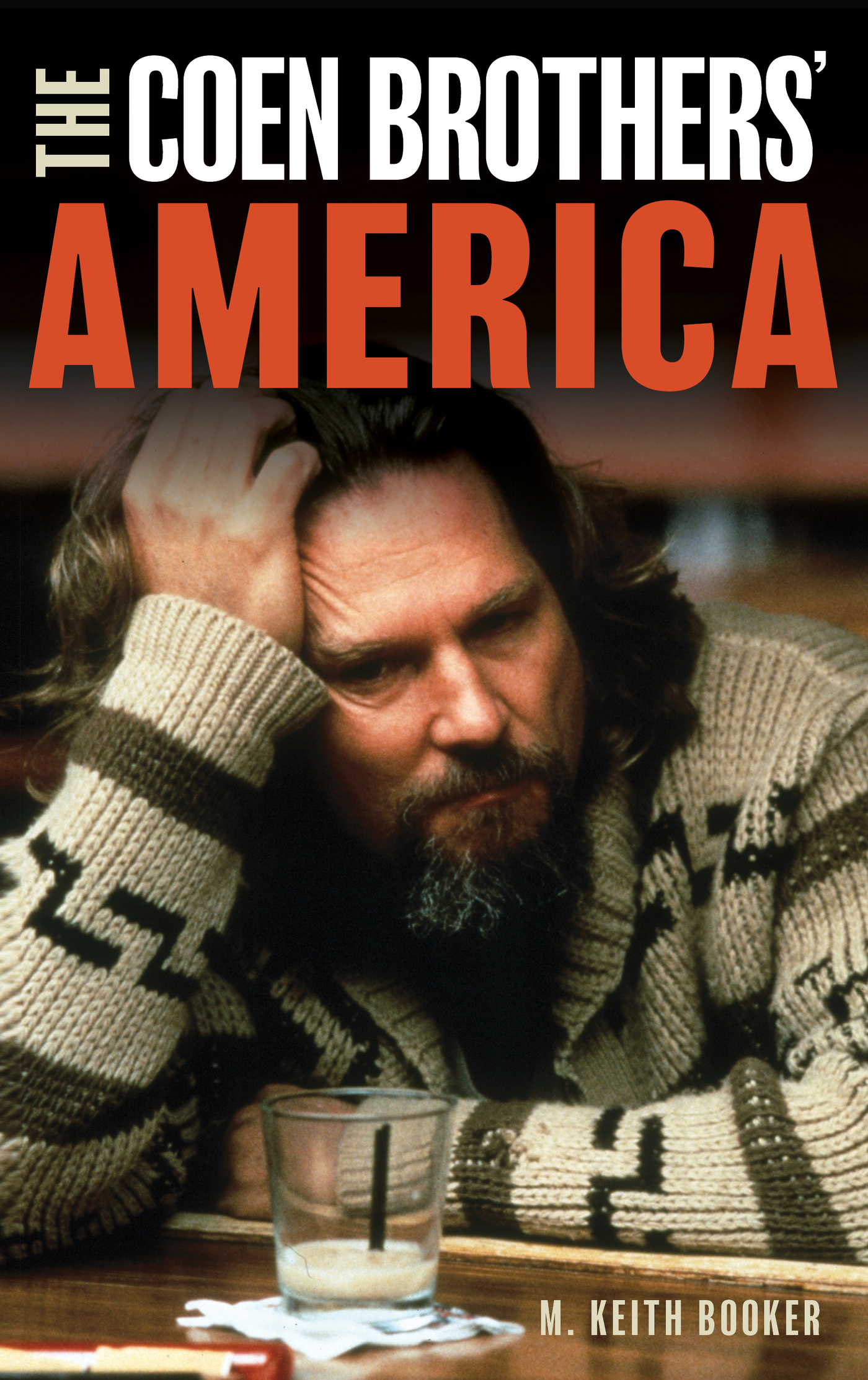The Coen Brothers
America
The Coen Brothers
America
M. Keith Booker
ROWMAN & LITTLEFIELD
Lanham Boulder New York London
Published by Rowman & Littlefield
An imprint of The Rowman & Littlefield Publishing Group, Inc.
4501 Forbes Boulevard, Suite 200, Lanham, Maryland 20706
www.rowman.com
6 Tinworth Street, London SE11 5AL
Copyright 2019 by The Rowman & Littlefield Publishing Group, Inc.
All rights reserved. No part of this book may be reproduced in any form or by any electronic or mechanical means, including information storage and retrieval systems, without written permission from the publisher, except by a reviewer who may quote passages in a review.
British Library Cataloguing in Publication Information Available
Library of Congress Cataloging-in-Publication Data
Names: Booker, M. Keith, author.
Title: The Coen Brothers America / M. Keith Booker.
Description: Lanham : Rowman & Littlefield, 2019. | Includes bibliographical references and index.
Identifiers: LCCN 2018052705 (print) | LCCN 2018054682 (ebook) | ISBN 9781538120873 (Electronic) | ISBN 9781538120866 (cloth : alk. paper)
Subjects: LCSH: Coen, JoelCriticism and interpretation. | Coen, EthanCriticism and interpretation. | United StatesIn motion pictures. | National characteristics, American, in motion pictures.
Classification: LCC PN1998.3.C6635 (ebook) | LCC PN1998.3.C6635 B66 2019 (print) | DDC 791.4302/330922dc23
LC record available at https://lccn.loc.gov/2018052705
 TM The paper used in this publication meets the minimum requirements of American National Standard for Information Sciences Permanence of Paper for Printed Library Materials, ANSI/NISO Z39.48-1992.
TM The paper used in this publication meets the minimum requirements of American National Standard for Information Sciences Permanence of Paper for Printed Library Materials, ANSI/NISO Z39.48-1992.
Printed in the United States of America
Introduction
Alternate Realities: The Inside-Out World of
Joel and Ethan Coen
The America we see in the films of Joel and Ethan Coen is a sort of alternate-reality America that produces fresh (though slightly skewed) perspectives on real-world cultural history. Though they have worked on a few other projects, the Coens principal oeuvre consists of the nineteen feature films that they have written, directed, and produced in tandemfrom Blood Simple (1984) to The Ballad of Buster Scruggs (2018). Each of these films is set in a fictional version of a specific American time and place; in each case, however, the fictional version involved does not quite seem to coincide with the same time and place in the real America but is instead slightly offset from reality (and in ways that are distinct to the Coens). Building their films from bits and pieces extracted from American cultural history, the Coens have produced some of the most intricately crafted and intellectually sophisticated films of the past several decades, yet they have done so largely without sacrificing intelligibility or entertainment value. The Coens films are complex enough, however, that it does help to approach them armed with a few special insights and interpretive tools, which this volume will endeavor to supply.
The Brothers Coen are two of the most original and distinctive American filmmakers of the past three and a half decades. Joel was born in 1954, Ethan three years later. The brothers grew up in St. Louis Park, Minnesota, a suburb of Minneapolis. From the beginning, then, they saw American society from the seemingly mainstream position of a middle-class suburban family in the Midwest. The brothers had what was in many ways a classic American upbringing, living in material comfort, their minds nourished by the still-new medium of television, especially when they were driven indoors during the long Minnesota winters. On the other hand, as the children of Jewish intellectuals, they also grew up viewing America from a decidedly off-center position. This situation of being both insiders and outsiders relative to the American mainstream is, I think, also quite descriptive of their films and of the unique point of view from which their films observe American culture and American society.
The Coen Brothers and Alternate Reality
Most of the films of the Coens are, at least to an extent, reworkings of classic Hollywood film genres. However, the Coens approach these genres from a distinctly contemporary point of view, even if they also approach the genres with affection and respect, with little in the way of real revisionary intent. Indeed, they have pursued their creative engagement with a variety of different well-established film genres largely because they themselves are such big fans of genres such as film noir, the Western, and screwball comedies. In addition, individual Coen Brothers films often engage with several different genres at once, producing new and unique combinations. Its always fun to try to guess which genre (or genres) they might take on next.
They have, however, avoided one major film genre almost entirely and have, in fact, ruled out ever working in that genre: science fiction. As Ethan once said in an interview, we should never expect to find them working in science fiction because neither of us is drawn to that kind of fiction. I dont think we could get our minds around the whole spacesuit thing. Thus, in the spirit of subverting genre expectations, in the following study of the films of the Coen Brothers, I employ a concept from science fiction to tie all of their work together.
That concept, as I suggested above, is the alternate-reality (or alternate-history) narrative, in which the story takes place in a world that is very much like our own but differs from it in subtle ways, most commonly because some historical event in the past turned out differently than it did in our realitysuch as the Germans winning World War II, which is the premise of any number of such narratives. At least this concept doesnt generally require spacesuits. What it does require is a fairly detailed evocation of place and time, providing enough details gradually to make clear the fact that the reality of the story is not our own, a situation that also very nicely describes the films of the Coen Brothers. The Coens, as much as any filmmakers living or dead, set their films in specific and vividly realized places and times (often places that have figured prominently in American cultural history), from the Texas plains and honky-tonks of their first film, Blood Simple (1984), to the Hollywood Hills and soundstages of Hail, Caesar! (2016). The films also tend to take place in clearly delineated time periods, very often in specific years and at crucial points in American history, as when Barton Fink (1991) is set in late 1941, just before and after the U.S. entry into World War II, or when A Serious Man (2009) is placed, by a variety of contextual clues, in 1967, the year of the Summer of Love. And yet, the Coens also sprinkle their films with small (and sometimes large) anachronisms and inconsistencies that announce, not that they are sloppy filmmakers, but that they are very meticulous filmmakers who want us to realize that the places and times in which their films occur do not, in fact, quite correspond to places and times in the real world. Jeffrey Adams is clearly correct when he notes that the Coens seem to see themselves as American filmmakers who are dedicated to making films in and about the United States of America. But it is equally clear that their version of the United States resides in a different reality (or realities) than our own. Their films take place, in short, in alternate realities.
Next page
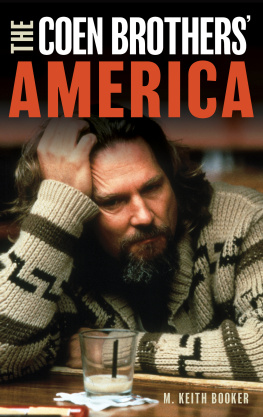
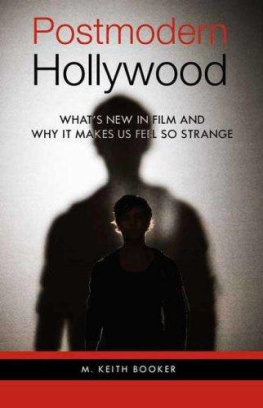

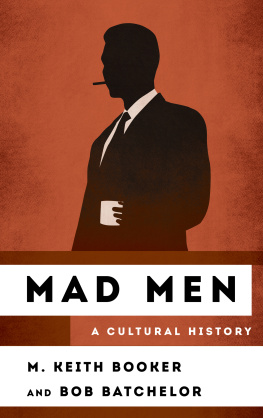
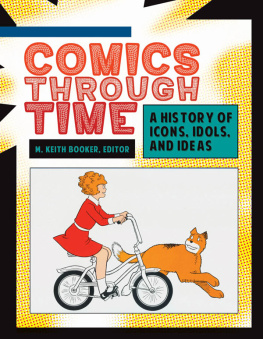

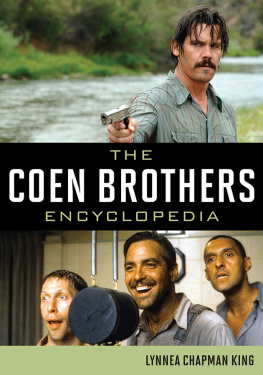
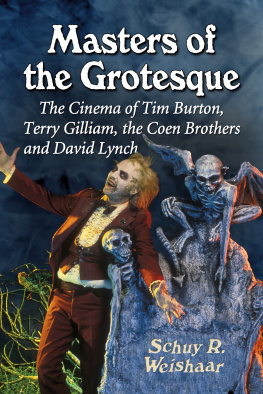
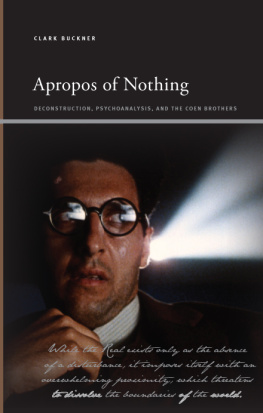

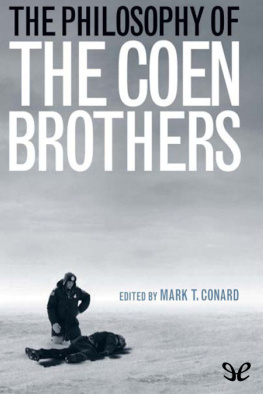
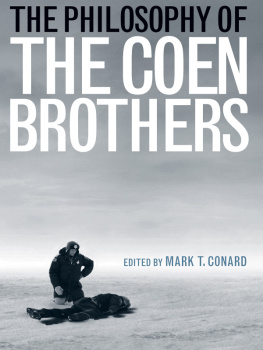
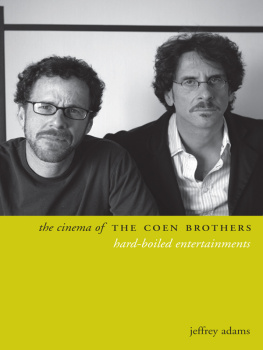
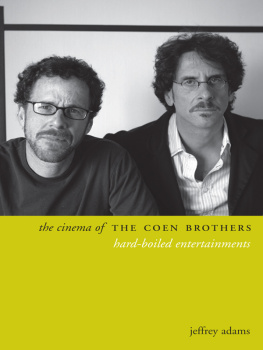
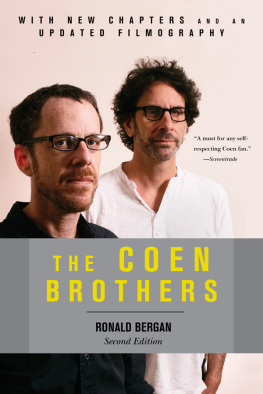

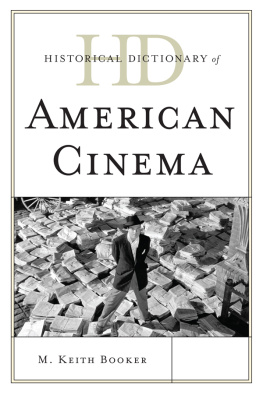
 TM The paper used in this publication meets the minimum requirements of American National Standard for Information Sciences Permanence of Paper for Printed Library Materials, ANSI/NISO Z39.48-1992.
TM The paper used in this publication meets the minimum requirements of American National Standard for Information Sciences Permanence of Paper for Printed Library Materials, ANSI/NISO Z39.48-1992.